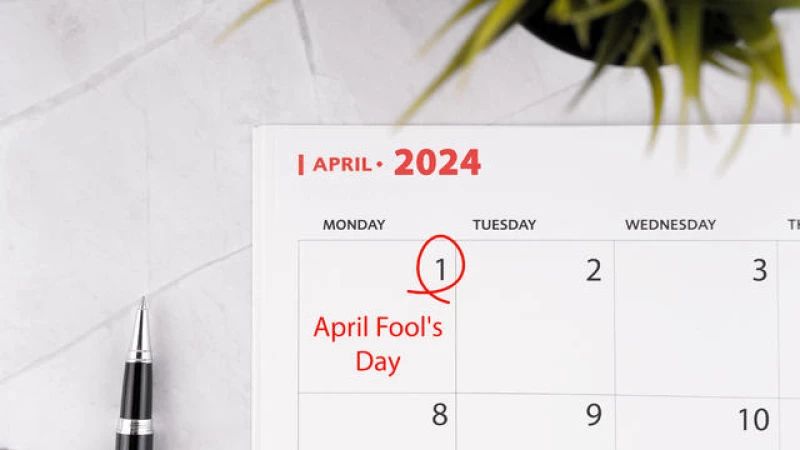Historians aren't pulling your leg when they say no one is quite sure about the origins of April Fools' Day.
April 1, the annual day of shenanigans, pranks, tricks and hoaxes, falls on Monday this year. While historians are unsure of the exact source of the tradition, they do know the custom goes back centuries, at least back to Renaissance Europe and possibly back to Roman times. Here's a look at what the experts say.
Theories, both real and false, tie April Fools' Day to Roman times
Some believe April Fools' Day dates back to Hilaria festivals celebrated during classical Roman times. The festival was held on March 25 which, in Roman terms, was called the "eighth of the Calends of April," according to the Library of Congress.
It wasn't.
Legend has it that a group of jesters once convinced Emperor Constantine to appoint one of them as king for a day. The chosen jester, named Kugel, declared that the day would be filled with humor and levity.
"I received an angry phone call from an editor who accused me of ruining the career of a young reporter," Boskin recounted in a post on Boston University's website. "He claimed that I had told a lie. 'A lie?' I responded, 'I was simply sharing an April Fools' Day tale.'
The Middle Ages
According to some historians, the origins of April Fools' Day can be traced back to France and a calendar change in 1582. That year, France adopted the Gregorian calendar, moving the start of the New Year from the spring equinox, typically around April 1, to January 1.
Following this change, individuals who continued to celebrate the new year in late March and early April were mockingly referred to as "April fools."
The earliest known mention of April Fools' Day dates back to a 1561 Flemish poem by Eduard De Dene, which recounts the tale of a servant sent on foolish errands because it was April 1, as noted by the Library of Congress.
Notable April Fools' Day Pranks
In 1957, the BBC aired a segment on the spaghetti harvest in Italy, jokingly claiming that spaghetti was being harvested from trees.
The BBC also ran an April Fools' report on flying penguins in 2008.
In Los Angeles, airline passengers were greeted with a banner saying "Welcome to Chicago" after landing on April 1, 1992, CBS Sunday Morning.
Taco Bell in 1996 advertised that it had bought the Liberty Bell and renamed it the "Taco Liberty Bell," according to the company.
As part of a 1997 April Fools' Day joke, Alex Trebek, host of "Jeopardy," swapped places with "Wheel of Fortune" host Pat Sajak, according to jeopardy.com.
On April 1, 2015, streaming giant Netflix shared faux public service announcements to remind viewers to "Binge Responsibly."







